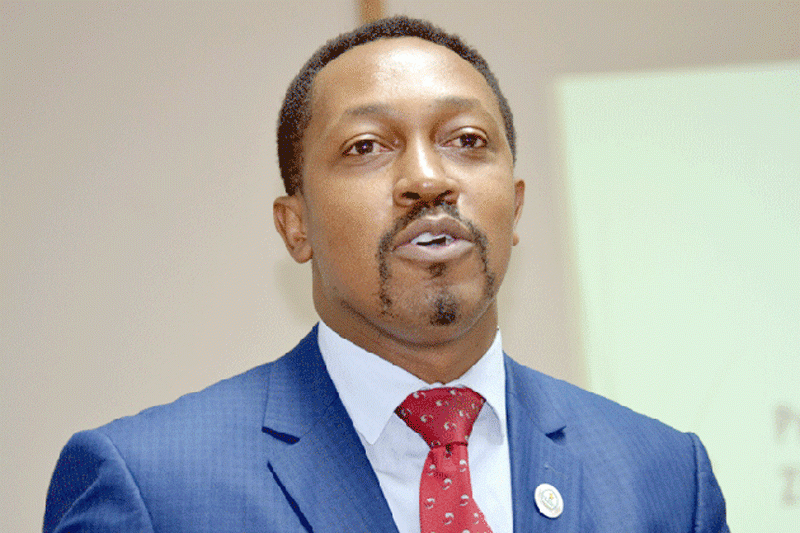
I almost threw up in my mouth when I saw a statement from President Emmerson Mnangagwa announcing that he was removing all tariffs on American imports.
Mnangagwa’s statement was in response to US President Donald Trump’s sweeping tariffs on almost all the countries in the world.
Zimbabwe was one of the first countries to respond, yet probably the least economically developed among those that were removing tariffs.
We do not import much from America and so the removal of the tariffs could have been nothing more than a performative gesture from the president.
Probably the thinking behind it was that if Zimbabwe removes its tariffs then America would not impose the new levies that it was proposing.
Unfortunately, that does not work with the clearly unhinged administration in Washington and instead of getting praise, we were lavished with scorn for removing the tariffs.
The Trump administration immediately said the removal of tariffs by countries such as Zimbabwe was meaningless because it viewed those offers as “zero tariff cheating” and a “misdirection”.
To add insult to injury, Trump said world leaders, presumably including Zimbabwe, were rushing to kiss his posterior in an effort to please him.
- Letter from America: Is former president Donald Trump a hero or villain?
- Village Secrets actress burial today
- Chidzivo, Tarakinyu clinch Kabag honours
- Ukraine becoming an international centre for illegal arms trade
Keep Reading
Ouch! This must be embarrassing for Zimbabwe that is if we still have any shame.
What is even more embarrassing is that Trump paused the tariffs literally less than a week after he had announced them.
By acting hastily, we again opened ourselves up to further embarrassment.
I am not going to go into the economics of it all, but I really do not understand why the president went down this route.
My first thought was that Mnangwa’s decision appeared hasty and arbitrary.
For starters, Mnangagwa is the chairperson of Sadc and his actions should be guided by what the regional bloc says about trade.
The Sadc trade protocol states that member states shall, to their best endeavour, co-ordinate their trade policies and negotiating positions in respect of relations with third countries.
At this stage, you would expect that Sadc would develop a common position in response to Trump’s tariffs which would be beneficial for the whole region and not single countries.
Trade policies in one country have an effect on another country and that is why Sadc and other regional blocs came up with such protocols.
Zimbabwe’s unilateral removal of tariffs will affect how it does business with its neighbours, raising the need for collaboration and integration within the region.
I can just imagine how Lesotho felt when Mnangagwa, the chairperson of Sadc, announced the removal of tariffs on American goods.
If I was the prime minister of that country I would feel betrayed.
After China, Lesotho was slapped with the highest tariff of 50%, which would all but cripple the country’s economy.
Lesotho’s main exports to America are textiles, particularly jeans. With a tariff of 50%, jeans made in Lesotho would become quite unaffordable and the country’s mills would have to stop working.
At this point, I am sure Lesotho looked to its neighbours for assistance or at least to come up with a common position, since all the countries were affected, but no, Zimbabwe went at it alone.
I can also imagine what South Africa must be feeling.
South Africa has been the victim of unjustified attacks by Trump’s administration and they would be expecting regional solidarity at what is clearly a testing time.
But no, not from Zimbabwe, we go it alone.
The reason why they may feel betrayed is because they have stood with Zimbabwe at a time when they felt their neighbour was being unjustly punished.
Mnangagwa came up with the anti-sanctions day that has been endorsed by his counterparts.
At every opportunity they get, a number of southern African leaders have spoken out loudly against the sanctions.
They have shown solidarity with us because what happens in Zimbabwe has a domino effect on their countries.
However, sadly, Zimbabwe seems to be less charitable.
In uncertain times like these, when there is clearly a trade war, increased protectionism and probably a global recession on the way, there is need for solidarity and togetherness particularly by smaller nations, which will bear the brunt of the economic madness that we are seeing on the world stage.
I hope that Mnangagwa rethinks his position and comes up with a tariff regime that is beneficial to Zimbabwe and will not hurt its neighbours.
As an aside, I wonder what went through Zimbabwe Investment Development Agency chairperson, Busisa Moyo’s mind when he saw the announcement.
One of Zimbabwe’s imports from America are edible oils and a zero tariff regime will definitely affect local production.
For a very long time, the cooking oil industry has been calling for protection and reduction of imports.
The removal of tariffs from the US, will particularly be damaging to the cooking oil industry that has just about found its feet.
Only last year, the government came up with the Zimbabwe Industrial Reconstruction and Growth Plan, which proposed imposing a surcharge on imported edible crude oil used for cooking oil production to incentivise domestic production of oilseeds and reduce the country's reliance on imports.
So, the tariff exemption on US goods literally upends this policy document.









